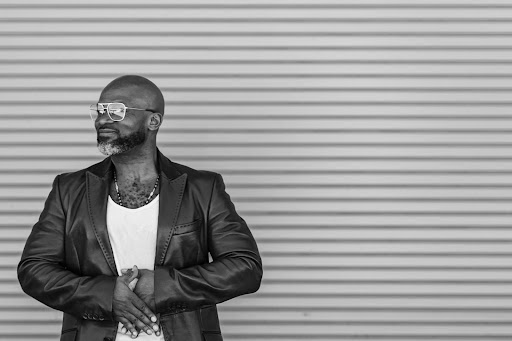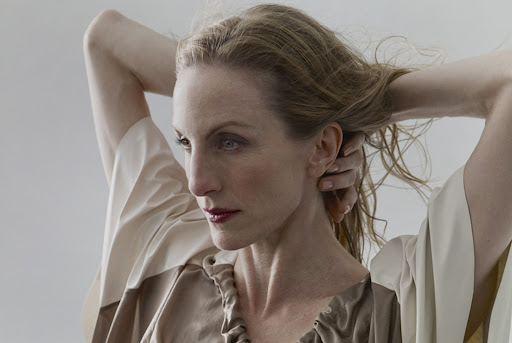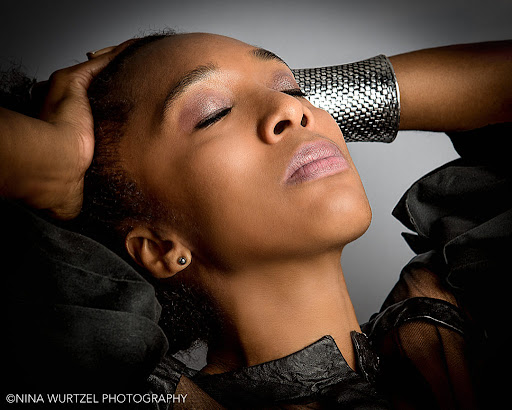
By Latanya West, Voice & Viewpoint Managing Editor
On January 6th, spoken word artist and Vice President and Artistic Director of Social Impact at the Kennedy Center happened to be living in D.C., not far from the U.S. Capitol. As for many of us, it was an inflection point for Bamuthi. Notes were furiously written down, poems emerged.
The pieces eventually found their way into the spoken word portion of Carnival of the Animals, a music-infused hybrid of spoken word and dance set against the backdrop of the U.S. Capitol rotunda on January 6th. Carnival of the Animals will be performed during La Jolla Music Society’s SummerFest at The Baker-Baum Concert Hall at The Conrad Prebys Performing Arts Center, 7600 Faye Avenue in La Jolla on Friday, August 18 at 7:30 p.m.
“This piece is whimsical. It’s reflective. I think it’s patriotic, it’s provocative and it is interdisciplinary in the true sense of the word. The composers take on these different animals. There’s a cuckoo and there’s a donkey, the swan, all these different animals. I decided to think about the animals in the political jungle. And more specifically, I imagined that the Capitol Building where Congress does its business, on January 6th, 2021 was a zoo,” Bamuthi, 47, said during a phone interview this week.
“I asked myself, who are the animals in that zoo? Who were the animals in that carnival? What happened that day? What [are] the repercussions for who we want to be as a country?”
Ahead of his first appearance here in San Diego, the Morehouse graduate discussed the fresh new take on an iconic classic. These are edited excerpts from the conversation.
Carnival of the Animals. It sounds vaguely familiar.
If you’ve watched Home Alone or your average commercial around Christmas time, you’ve heard selections from the Carnival of the Animals . It’s a 100-year-old composition by iconic French composer, Saint-Saëns. [It] has a lot of familiar music.
How did you get involved?
[Around] 2018, I was asked by a chamber orchestra to play the role of the narrator. I had taken all these notes on January 6th. I still live in DC. I was very, very close and still am, as we all are, to the shadow of those events and it hit me, ‘Oh, this is how to take this work and these disconnected poems [and] vignettes and bring them together in a cohesive way that lands us all in the same place in time.
What does this new production bring to the discussion?
The first inkling was to throw a political lens on the Carnival of the Animals. It has been a very eventful four years In American history. A pandemic and an insurrection and the murder of George Floyd and disruption of the last presidential administration which, I think no matter where you fall on the political spectrum , [it] was disruptive in terms of norms.
Traditionally, when the Carnival of the Animals is performed, a chamber orchestra will perform the first 3 to 5 movements. Then a narrator will drop a few limericks, these tongue-in-cheek lines about the animals, almost like a ringmaster. So the first thing was, well, let’s take this trope of the narrator and let’s give it a little bit of edge.
[It’s a] take on this iconic composition and this iconic dancer. My partner on stage, Wendy Whelan, is one of the greatest dancers in the world, and [we] played with these conventions by using spoken word as a throughline through the piece.

What can we look forward to experiencing in this new production?
Really high caliber musicianship. Beautiful music, classically arranged that also integrates modern sound design. The composer is Sugar Vendil, a Filipina woman who has made the original compositions new and specific. There’s myself, a first generation American of Haitian descent. There’s Wendy Whelan, who’s from Louisville, Kentucky and there’s the African American choreographer, Francesca Harper [who is] now the artistic director of the Ailey II.
And, there’s this animal that I made up called the Louisville Freebird, inspired by Breonna Taylor.

The Goat is a new animal, right?
In our version, the last animal in the carnival is The Goat. Normally, you’d think about Muhammad Ali or Serena Williams. The Greatest of all Time. In my conception, it’s the Greatest of all Theories. because that’s what the constitution is. It names a form of government that had yet to exist. It’s me literally running into a goat at a crossroads halfway between the United States Capitol Building and my apartment in DC. That’s where we are, we’re at a crossroads. At our most optimized, we can be transformational, but it’s a choice. Democracy itself is not inevitable.
Where do we go from here? Who do we want to be? As it is, the piece is still pretty funny. I think it’s provocative but it’s not polemical, at least not overtly. What we cheer for, ultimately, is democracy.
That’s what’s dope about being in a theater. It’s one of the few times where you’re not watching the Ravens [or] the Chargers play and there are 50,000 people yelling about one team or another. When we’re at a [play or a concert] together, we are all inspired together.
How does your background and love of Hip Hop inform your work?
I would say I engage the questions of our moment and maybe form questions that intersect with. both survival and yearning for what I refer to as the American Promise.
I was growing up as hip hop was growing. Hip hop turns 50 on Friday. I’ll turn 48 in November. Hip hop and hip hop culture was alive for me. The politics of direct engagement from NWA to Boogie Down Productions to Public Enemy and, outside of the music, … Spike Lee’s first films, [art] that directly addressed colorism, police brutality…People were making these cultural moments, they weren’t just culture makers themselves, they were also children of the Black arts movement.
My art comes out of that genealogy and I feel like it’s my responsibility to keep the questions moving because we haven’t arrived at the equitable horizon yet.
What are your thoughts on hip hop today, and its global influence?
Mos Def on his first album, talks about folks [asking] him, where is hip hop going? Like it’s a giant in the hills somewhere. You’re hip hop. I’m hip hop. So if you want to know where hip hop is going, ask yourself, where am I going? What am I doing? The same is true for anybody in this country, documented or not, citizen or not. What are we reading? What are we banning? What are we embracing? What are we creating?
Hip hop is a signifier for many things: hyper capitalism, hyper sexuality, the outsider. At its worst it is deployed as a signpost for some of our collective worst pathologies. But at its best, it is a culture that brings people together with joy at the center and serves as a conduit for intellectual depth, for literary greatness and for freedom in the body.
I try to use hip hop in what I think of as its most optimal forms. I find freedom in my body through the culture. I love being with my people inside the culture.
What’s your favorite part in this new version of Carnival of the Animals?
The Cuckoo, part of the original [production], and the Bull. The Bull is a remembrance of my time in Atlanta.
While you were in school?
While I was in school. Anybody who was at Freaknik in 1994 will appreciate The Bull.
Any advice for artists on a similar journey as yours?
The contemporary artist has a responsibility that is newly urgent. Listen to your inner voice, make work that feels right for you, practice, read the book, but if this is what you’re choosing and now is when you’re choosing it? Then there’s a particular tax that our country is asking of us.
How do you make a living as a creative being or a free thinker, or [as] someone who holds on to [their] integrity? These are valid and deeply intimate concerns. You have to pay your bills. But there’s also a larger calling.
There is an undeniable movement towards cultural erasure in our country right now. It’s not just that we preserve cultural output, it’s that we make culture. Maybe that also comes from the idea of hip hop. The idea that the MC is someone who “MCs”: who makes culture.
Who in America is producing grace right now? Who in America is producing beauty? Who among us right now is fearless? I would like to think that that is the role of the artist.
Tickets and information about Carnival of the Animals are available at the La Jolla Music Society box office, by phone at 858.459.3728, and online at TheConrad.org.


